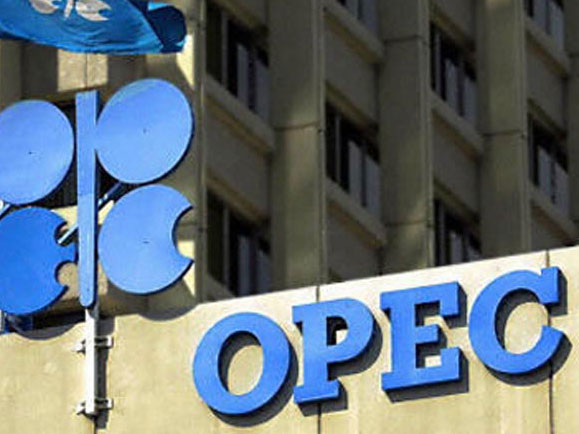Baku, Azerbaijan, Apr.18
By Vagif Sharifov - Trend:
"Five brothers" versus "seven sisters"
More than half a century ago, five major oil producing countries - Iran, Iraq, Venezuela, Kuwait and Saudi Arabia - agreed to work together to deprive seven transnational companies - Exxon, RD / Shell, Texaco, Chevron, Mobil, Gulf Oil and BP - of unlimited influence on the oil market.
Later, the number of "brothers" reached 13 and they organized OPEC, while the "sisters" started to work independently from each other. OPEC had a great influence on the oil market for tens of years.
When there was a need to reduce or increase the oil prices, all hopes were pinned on the cartel.
The cartel's decisions were clear, its management was accurate and effective, the violation of oil production quotas was not critical for the market and everyone turned a blind eye to this.
This situation continued until the 2000s, when OPEC's innovative price mechanism began to shake the market, intensified the speculations, began to sow discord among the participants and led to significant violations of quotas.
The oil prices were dropping to $16 per barrel\and increasing to $143 per barrel throughout 2000s.
The artificial overstatement in oil prices came to an end in the autumn of 2014, when the prices began to fall. The fall would have continued, if sometimes the rumors about saving the market are not pushed the prices up slightly. The negotiations in Doha were one of these popular rumors.
Salvation did not happen
Several oil producing countries undertook the function to help with the support of Saudi Arabia, which has promised to consider what could be done. But the Saudis have always warned that they can't do and won't do anything, and together - means that all together. The intrigue expected from Doha was that how non-OPEC countries will succeed to agree with the cartel's member countries on freezing oil output at the level of January 2016. But the negotiations failed not due to a lack of consensus between OPEC and non-OPEC countries, which, incidentally, include the delegations of Azerbaijan, Russia, Kazakhstan, Bahrain, Oman and Mexico, but due to the fact that there was no agreement within the cartel, which 56 years ago undertook to save the world from the influence of "Seven Sisters."
Firstly, Iran refused to send any representatives to Qatar to participate in the meeting, motivating its decision by the fact that the country has been under sanctions for too long to freeze oil production now. The Saudis, in turn, demanded that absolutely all OPEC members join the initiative. Saying so, the Saudis meant those who didn't come to Doha, namely, Iran and Libya. Judging by the statements of the relevant ministers who arrived in Doha, no agreements at all were reached at the meeting.
For example, Russian Energy Minister Alexander Novak only said that the meeting in Doha became a significant event. Nigerian Oil Minister Emmanuel Ibe Kachikwu suggested to first settle everything within the OPEC before inviting other countries. The next time the OPEC meeting will take place in Vienna in June, the Nigerian minister said, adding that the OPEC members will first agree among themselves before attracting the countries outside the cartel.
Thus, the meeting, which only worsened everything, showed that the OPEC is no longer relevant and there is an urgent need to create an alternative to the cartel. It is obvious that the results of Apr. 17 led to a six percent drop in the June oil futures on Apr. 18 - Brent crude at the opening of trading at the London Stock Exchange already dropped to $40 per barrel, while WTI crude fell by 6.8 percent to $36 per barrel.
In fact, the rescue plan in Doha could help prices increase. After freezing the production at the level of January and holding it until October, futures would begin increasing this Monday, but after an increase in demand in the third quarter (with the supplies at the level of the beginning of the first quarter), the prices would increase.
As a result, on average, we would have $55-$60 per barrel in 2016 versus $30-$35 per barrel, which perhaps we may obtain now. The speculations will only worsen the situation in terms of the unprecedented imbalance of supply and demand on the oil market because everyone has realized that there is nobody 'responsible for oil' any more. Thus, the failure during the Doha talks in fact revealed the death of OPEC.
Nobody can hope for the growth of demand for crude oil as the IMF predicted the fall of the global economy this year. It is obvious that the weak economy generating weak demand for oil leads to a constant fall in prices in case of overproduction of crude oil. I wonder whether we see $9.1 per barrel again, as it was in December 1998.
Vagif Sharifov is an analyst and expert in oil and gas markets.
Follow him on Twitter: @VagifSharifov








